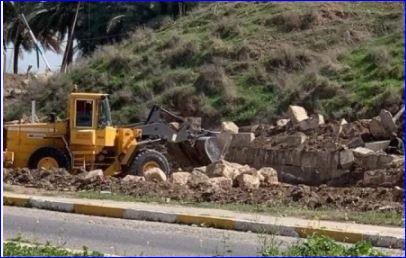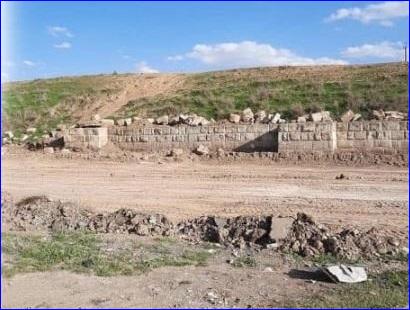


 ankawa.com)
ankawa.com)
The wall of Nineveh built during the reign of King Sennacherib (reigned 705-681 BCE) which stretches 12 km along the city of Nineveh (Mosul, Iraq) is being partially bulldozed by private contractors. Activists and locals fear the remains will be used as building materials or sold as artefacts in the black market.
But the Antiquities Commission in the Nineveh province has denied the demolition falls in the Nineveh wall vacinities and it is 600 meters out of the protected Nineveh wall area.
SBS Assyrian correspondent Naseem Sadiq from Duhok, Iraq told SBS that the wall is being knocked down to allow for road building in the city.
The land surrounding the part of the site is claimed by an Iraqi family who states the previous government of Saddam Hussain confiscated it as part of government property.
Since the fall of Saddam and the old regime, the family has been fighting in courts to get the property back. Recently, the family won their appeal and the land was returned to them, however none of these procedures were discussed publicly.
Naseem Sadiq also spoke to Dr. Audisho Malko, an Assyrian historian and President of the Assyrian Writers Association who says he is devastated by this act.
Dr. Malko explains that the partial destruction of a three-thousand-year-old structure built during the Assyrian empire is not only a loss to the Assyrians, but for the Iraqi people, Iraq's history and to the international community. The wall was initially built to protect the city of Nineveh from intruders and invaders.

 ankawa.com)
ankawa.com)
The issue of this destruction is not over yet. Our correspondent Naseem Sadiq is following up the developments and will be reporting soon on responses from Assyrian activists and politicians, Iraqi academics and intellectuals. So far, a number of letters objecting the destruction have been sent to Iraqi ministries and to the Prime Minister of Iraq, Mustafa Al-Khadhimi.

or register to post a comment.